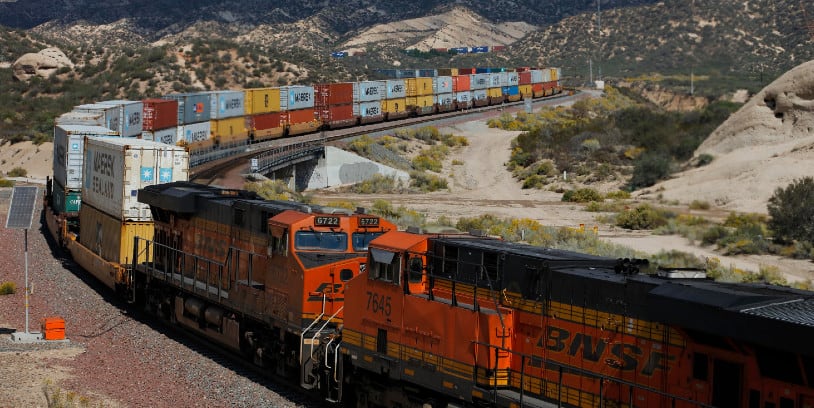The National Grain and Feed Association (NGFA) and 192 other Agricultural Transportation Working Group members urged Congress to act to prevent a railroad shutdown in December.
Also, Consumer Brands Association warned that rail service stoppage would imperil product availability, shut down manufacturing lines, and cut off consumers’ access to everyday essentials.
The Biden administration brokered an agreement between the National Railway Labor Conference, which represents railroads, and 12 rail labor unions on Sept. 15 that prevented a railroad strike subject to final ratification by the unions. However, four unions have now voted against ratification.
“The companies that manufacture and distribute everyday items like peanut butter, cooking oil, breakfast cereal, soap, canned vegetables, and household cleaners utilize rail to transport high concentrations of both raw input ingredients and finished products,” said Tom Madrecki, vice president of supply chain and logistics.
Related Article: FDA’s Final Food Traceability Rule Raises Questions from NGA and FMI
“Freight rail constitutes approximately 30 percent of total CPG transportation, but rail-centric operations rely almost exclusively on rail due to bulk commodity shipment requirements, historical distribution patterns, and manufacturing efficiencies. These operations cannot easily transition to other transportation modes, nor is there available capacity to handle huge swings in demand,” Madrecki added.
Congressional action will be necessary if they fail to reach an agreement before the “cooling-off” period ends, which is currently scheduled for Dec. 5 for one union and for Dec. 9 for the other three unions that voted not to ratify.
“A rail strike or lockout combined with existing challenges in the rail system and other modes of transportation, including trucking shortages and low water levels on the Mississippi River hindering barge shipments, would be catastrophic for the U.S. economy,” said NGFA President and CEO Mike Seyfert.
“The railroad network has experienced significant service disruptions at different times throughout the past year. Any additional railroad service disruption would immediately impact the nation’s food, agriculture, and broader supply chains. The risk in both domestic and international markets is real. Congress must take bipartisan action to prevent a strike or lockout from occurring.”
If there is a strike by SMART-TD or any of the other three railroad unions that have rejected proposed contracts with the carriers, BLET and the other eight rail unions that have ratified agreements have pledged to lawfully honor their picket lines.
A status quo agreement between SMART TD and management is in effect until December 8. Beginning on December 9, SMART-TD would be allowed to go on strike, or the rail carriers would be permitted to lock out workers unless Congress intervenes.


